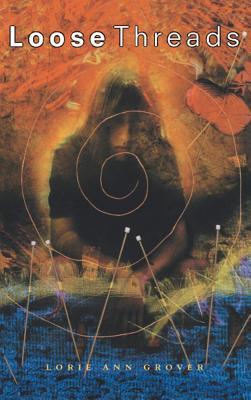
Loose Threads
فرمت کتاب
ebook
تاریخ انتشار
2013
Reading Level
2
ATOS
3.5
Interest Level
4-8(MG)
نویسنده
Lorie Ann Groverشابک
9781439131985
کتاب های مرتبط
- اطلاعات
- نقد و بررسی
- دیدگاه کاربران
نقد و بررسی

September 2, 2002
In this hard-hitting debut novel, seventh-grade narrator Kay chronicles her grandmother's struggle against breast cancer in free-verse poems. The poetry tackles not only the tactile lumps and "wiggly, jiggly prostheses," but also the more abstract yet realistically sketched stages of denial, anger and grief. Kay's everyday junior high tribulations and insightful observations about friends, crushes and her difficulty coping provide a welcome counterpoint: "School rolls on./ Class after class./ Teachers give assignments./ It's so fake/ when real stuff is going on." Kay also pinpoints the differences between the four generations of women in her home: "Gran Eula/ is so harsh and strict./ Mom is such/ a perfectionist./ What/ are they about?/ It's Grandma Margie who/ is sweet." Grover effectively charts Kay's evolving strength, grace and faith, as her feelings of separateness cause her to befriend the class outcast, to hug her undemonstrative relatives and to tie up the titular loose threads by learning to knit, fight and eventually even let go of Grandma Margie. Throughout Kay offers her fierce, unsentimental perspective, such as at the funeral: "Why should I trust/ two guys with shovels/ who smoked, whispered, and chuckled/ the whole time/ our pastor was praying?" Any reader who has faced cancer, death or just struggled to define his or her own truth will respond to this memorable heroine and the novel's themes of loss, survival and remembrance. Ages 9-12.

October 1, 2002
Gr 5-8-When her grandmother is diagnosed with breast cancer, and throughout the months after, seventh-grader Kay feels the fabric of her family will soon unravel. How can she deal with this tragedy, along with her own preteen problems with school, boys, and friends. Through her narrative, this series of brief poems relays the emotions of four generations of women affected by Grandma Margie's announcement, subsequent mastectomy, chemotherapy, and death. While the subject of cancer is not trivialized, the somewhat stilted lines and poetic format take away from the story's immediacy. Readers are likely to want a stronger sense of Kay's relationship with her grandmother, but they are constantly distracted by poems that fail to illuminate that relationship or the protagonist's feelings. Character development is weak, and the author keeps readers at arm's length from caring about their situation. The poems are honest, however, tinged with the palpable angst that most teens would feel in these circumstances. This is a commendable, though not entirely successful effort, with a valuable resource list and bibliography of information about cancer. If a little awkward to read, this is still a useful resource to add to the canon of books needed on this important topic.-Sharon Korbeck, Waupaca Area Public Library, WI
Copyright 2002 School Library Journal, LLC Used with permission.

Starred review from November 15, 2002
Gr. 6-9. Four generations of women cope with a family member's breast cancer in this poignant first novel written in free verse. Seventh-grader Kay lives with her mother, her grandma Margie, and her great Gran Eula in one Florida home. Everything is mostly harmonious, even though her mother and Gran Eula are perfectionists, and Kay wishes that she were hugged more often. It's warm Grandma Margie with whom Kay really connects. When Margie is diagnosed with cancer, Kay struggles to balance school, friends, crushes, and caring for her grandmother under the weight of her own grief. Organized into brief vignettes made up of just a few lines per page, the poetic, spare language, written in Kay's self-possessed, first-person voice, is refreshingly frank about the disease. Kay's private questions range from the largest ("How can God let this happen?") to the most practical ("Where do the breasts go after mastectomies?"). There's humor too: in "Wiggly Jiggly Prostheses," Kay squeezes all the "bosoms" for Margie to find "the right one . . . to fill her empty space." Like Virginia Euwer Wolff's free-verse novels, Grover's book balances vivid emotional scenes with plenty of space between the words. Readers, especially those who know illness up close, will connect with Kay's secret worries and deep sadness and will admire her strength.(Reprinted with permission of Booklist, copyright 2002, American Library Association.)

























دیدگاه کاربران